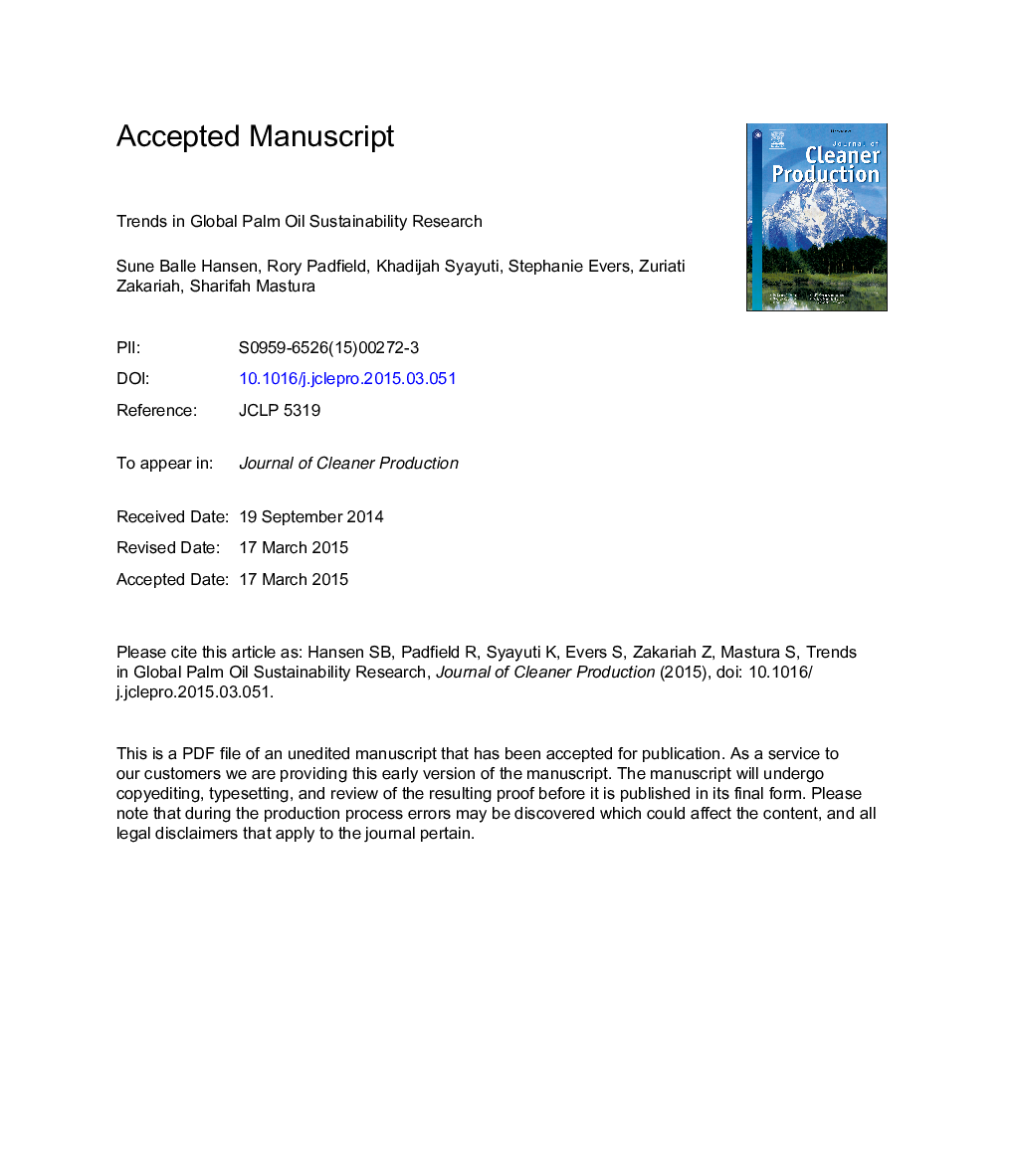| Article ID | Journal | Published Year | Pages | File Type |
|---|---|---|---|---|
| 8103967 | Journal of Cleaner Production | 2015 | 31 Pages |
Abstract
In the past decade, palm oil has risen to become the most produced and consumed vegetable oil in the world. Growth of commercial plantations in Southeast Asia and recent expansions in West Africa and Latin America have led to a growing call for the sustainable production of palm oil, driven to a large extent by concerns over the associated impacts of deforestation and biodiversity losses. This study investigates the academic response to the calls for the sustainable production of palm oil by identifying and analysing Thomson Reuters Institute for Scientific Information indexed palm oil sustainability related publications from 2004 to 2013. The results show that the total number of publications has increased exponentially from 11 in 2004 to 713 by 2013. However, this growth is shown to be carried mainly by research within technical aspects of palm oil residue use; publications in the categories of land use & land use change, biodiversity and socio-economic aspects have increased, but the growth has been markedly slower. It is thus argued that there is currently an imbalance in research strategies since the focus towards technical topics is at odds with the major sustainability issues raised about palm oil production. To address the current imbalance in palm oil research, this study proposes a holistic framework for palm oil sustainability research with the aim of achieving multidisciplinary studies and emphasizing collaboration between industry and academia. Research sponsors and public bodies in charge of science, social science and technology research frameworks will thus benefit from improved understanding of where research and development resources can be allocated to facilitate the transition towards improved sustainability.
Keywords
Related Topics
Physical Sciences and Engineering
Energy
Renewable Energy, Sustainability and the Environment
Authors
Sune Balle Hansen, Rory Padfield, Khadijah Syayuti, Stephanie Evers, Zuriati Zakariah, Sharifah Mastura,
